An article by Ernest Bell, writing in Sept. 1914.
First some notes –
-
In this article, Ernest Bell is reflecting on his 40 years of being a vegetarian. He started to be an animal rights activist in ~ 1873. He had stopped eating meat in about 1874. He ‘veganized’ books which he published. His consumption of animal products such as milk seems to have been ‘O’.
-
~ …a little over twenty-five years… ~ – Ernest Bell is thinking of the period between 1847 and 1874. The Vegetarian Society had been founded in 1847 – by William Horsell – a ‘vegan’ – but had almost immediately been ‘taken over’ by egg, milk & honey consuming Bible Christians from the Manchester area.
-
~ In those early days there was no place at all in London where one could get a vegetarian meal, except tea and cakes or bread-and-cheese and beer. ~ – he is talking about 1873/4. London’s first vegetarian restaurants started to open from 1879 – more here.
-
The London area was where most of the ‘vegans’ were based. It was a London ‘vegan’ – Dr. William Lambe – who had greatly influenced both British and American humanitarians to leave all animal foods in the very early 1800s. More here – with a UK focus – more here – with a US focus.
-
Interviews where Ernest Bell talks more about his ‘conversion’ – here.
-
Ernest Bell & Henry S. Salt both writing about early ‘veganism – here & here.
-
We now know that there is slight mix up in the dates – the referenced Spectator review actually appeared in 1876. We have the benefit of Google Search – Ernest Bell was thinking back almost 40 years.
-
We have added a few images to break up the text. The original journal pages are duplicated below this.
Keep in mind that this was written 102 years ago.
Sweet history from our ‘ancestor’……
Ernest Bell –
It is only when glancing back over a period of forty years, as a believer in and practical follower of the humane diet, that one realises the great progress which has been made in this cause. It is true that the Vegetarian Society had already been at work for a little over twenty-five years, but its home was in Manchester and its work had naturally been mainly in the north.
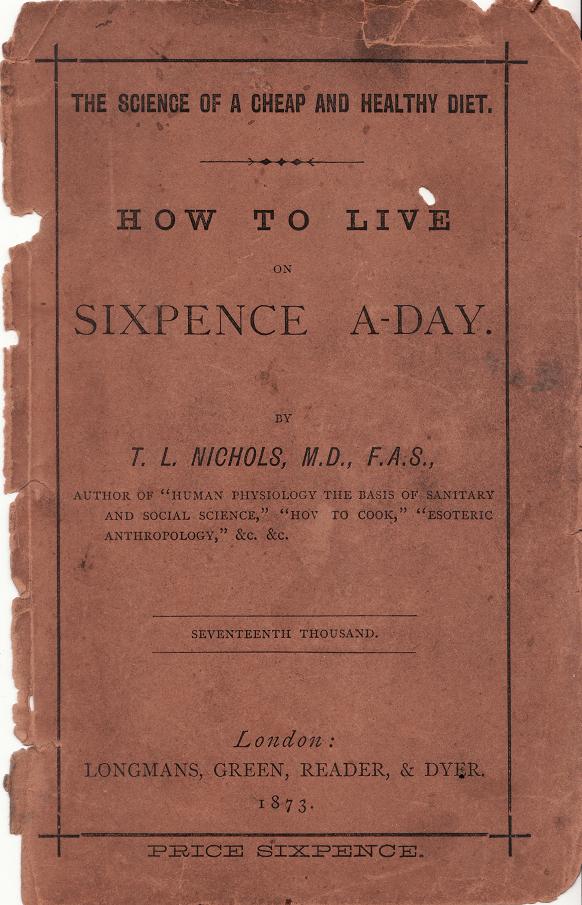
Our first introduction to the question was through an English-American, Dr. T. L. Nichols, whose booklet on “How to Live on Sixpence a Day” was reviewed in the Spectator. The reasoning of this and other books and pamphlets proved convincing, and we followed whither they led, as we think anyone must do who is influenced by sound argument. The difficulty in this and most forward movements is not that they are wanting in a logical basis, but that people are not so prone to be led by logic as by feeling, which in most cases means custom and prejudice – to prejudge the case and never allow the reasoning faculties a chance to assert their claims. For which reason it is generally useless to try to convert people by reason unless their feelings of altruism and sympathy are sufficiently cultivated, when reasons are no longer needed except as a justification of feelings.
In those early days a “vegetarian” was a rare object, and was regarded as a very curious person. His sanity was almost doubted and his early decease was confidently predicted. If anything ailed him, even such ordinary ailments as a cold, a headache, or even a stiff neck or a sprained ankle, the cause was traced to that “absurd fad” of his.
Many people – we may perhaps say most people – did not know what a vegetarian was, and had no idea that a person could, live without eating meat. We remember one housemaid who, on being asked if she had any objection to living with vegetarians, expressed herself as quite ready to do so and was found afterwards to have made inquiries as to what kind of “religion” it was. In those early days there was no place at all in London where one could get a vegetarian meal, except tea and cakes or bread-and-cheese and beer.
Compare this with the present state of affairs and you see that the development is most striking. That there is still a strong feeling in some quarters, born of ignorance and prejudice, against the humane diet, we know, but there can be very few people nowadays who have not heard of it and realised, through some friend or some friend’s friend, that healthy life without meat is at any rate a possibility.
Our newspapers now freely allow the matter to be discussed in their columns. They report meetings, and many publish vegetarian recipes, especially in the summer months, and some even advocate the diet. A new spirit has also come into our restaurants. A friend of ours recently showed us a printed list of some hundreds of restaurants in England and on the Continent where vegetarian meals could be procured, and a number of dining-rooms, in which meat is supplied, now cater for the humane dietist to the extent of providing one or more vegetarian dishes daily. Largely through the influence of the late Professor Mayor, who was President of the Vegetarian Society, such very conservative institutions as the colleges at Cambridge and Oxford now in some cases provide vegetarian tables in the dining-halls. There are also quite a number of schools about the country where the boys and girls can have a meatless diet.
Forty years ago the athlete in his training was subjected to a perfectly outrageous diet. We ourselves have been at “training breakfasts” in our time, and have a most unpleasant recollection of the heating oatmeal porridge – enough in itself for a meal followed by semi-raw beef-steaks, boiled eggs, and other foods of the most stimulating, kinds that could be found. The not unnatural result was that it was quite usual for some member or members in any team to succumb to boils and other skin eruptions during the training, and have to undergo special treatment to purify the blood again. This is all altered now: the Vegetarian Cycling and Athletic Club has shown the world that the best results on the cinderpath are obtainable without recourse to the overstimulating meat diet, and the numerous records they have broken supply the best practical evidence of the efficacy of a meatless diet.
Evidence of progress of a very different sort may be found in the members of the various bodies which represent advanced thought of different kinds.
The Fabian Society, for instance, which is a purely politico-economic organisation, and is a body has no interest in dietetic questions, contains amongst its members enough vegetable feeders to make it worthwhile to have a special table for them at their Summer Schools.
Annie Besant
The Theosophists in like manner are not concerned at all specially with questions of diet or health, but they contain in their ranks a large number of reformed dietists, and Mrs. Besant as their leader has issued a pamphlet in which she urges on her followers that, as consistent adherents of the movement, they ought to give up the eating of flesh foods.
Mary Baker Eddy – founder of – Christian Science
Again, amongst the Christian Scientists, a large and increasing body, in whose teaching there is no prominent or vital pronouncement on the question, there is an increasing number of meat abstainers amongst the most thoughtful, and they are pleased to be able to show that their books do contain recommendations to abstain from meat diet.
A suffragette meeting in London circa 1909
In the great Women’s Movement also, which is social and political and not in any way hygienic, we again find amongst the advanced spirits a strong tendency to adopt the more enlightened diet. Many of their gatherings have been held at vegetarian restaurants, which also are crowded by their adherents on their days for organized meetings.
Co-operative Holiday Association – pin
The Co-operative Holiday Association, a society founded simply to give the opportunity of a pleasant holiday on reasonable terms to the brain-workers in our towns, also in like manner provides a vegetarian table wherever desired in its holiday resorts.
We might continue the record, but think these cases will be enough to show that, where there is any advanced thought and desire for progress, there the non-meat diet is becoming more and more recognised and adopted.
Further evidence to our progress of a different kind is furnished by the very noticeable change in public estimation in which the movement is held (1) amongst meat-eaters, and (2) amongst vegetarians themselves. We remember well the time when we were objects of ridicule and really had to apologise for daring to be so eccentric as to attempt to live without meat. The reverse is now the case. We constantly have people apologising to us for not being vegetarian. Many a one now assures us that he, or she, would like to be a vegetarian, that he really takes very little meat–only once a day, and not much then, and that only because a doctor recommends it, or a wife is delicate, or a husband does not like it, or some other equally feeble excuse called a reason. Amongst vegetarians themselves there seems to us also to be a strong tendency to view the matter in its higher aspects. There are, no doubt, and will still be for a long time, many who will see only the hygienic and economic aspects of the question, but there is an increasing number who feel the moral and spiritual aspect of the movement, and realise that the humane diet is an important aid to the higher life and a necessary condition of our further progress in many directions.
The progress of the humane diet is, in our opinion, a result rather than a cause. It is not so much that vegetarians are humanising the world of men by their teachings, as that the progress of the race the growing realisation of the brotherhood of men and the universal kinship of all animals, is introducing and fostering a more humane spirit, and making it impossible for the thoughtful people of the world to condone the injustice and sacrifice of the lower brethren involved in the use of their bodies for food, to condemn their fellow-men to a brutal and demoralizing trade, or to hamper their own spiritual progress by clinging to a primitive and barbarous practice.
E. B. = Ernest Bell
The Original
……
Our Projects
The Henry Salt Archive is one of our, almost completed, projects.
The Humanitarian League is our Hong Kong registered charity. It cares for The Ernest Bell Library, which was conceived in 1934.
The library is still strong & very active eighty years later – its primary objectives are to: –
-
Collect all of Ernest Bell’s book & non-book works and make them easily accessible to everyone.
-
Collect the literature of vegetarianism and all the other humanitarian movements in which Ernest Bell was so deeply involved.
-
Assist students and scholars in their research.
-
Introduce all aspects of Ernest Bell’s life, including his writings, campaign work, influences and his circle of friends.
-
Undertake our own research into missing aspects of Ernest Bell’s life and work.
We already have more than 300 pieces of Ernest Bell’s own writings.
We are also actively building a collection of examples of promotional material, campaign material, fundraising & marketing activities etc. – related to: –
-
veg(etari)an products.
-
veg(etari)an books & other publications.
-
veg(etari)an organisations.
-
veg(etari)an businesses.
-
animal rights organisations.
-
animal rights publications.
-
humanitarian organisations.
-
humanitarian publications.
-
rambling clubs run by members of the above groups & related publications.
-
the work of Richard St. Barbe Baker & the ‘Men of the Trees’ organization & its many sub-branches.
-
the history of Democratic Socialism.
-
pre-WW2 Trade Union badges / pins / ephemera.

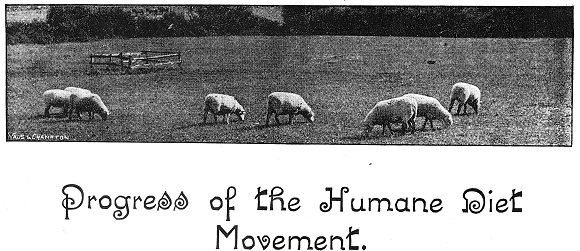

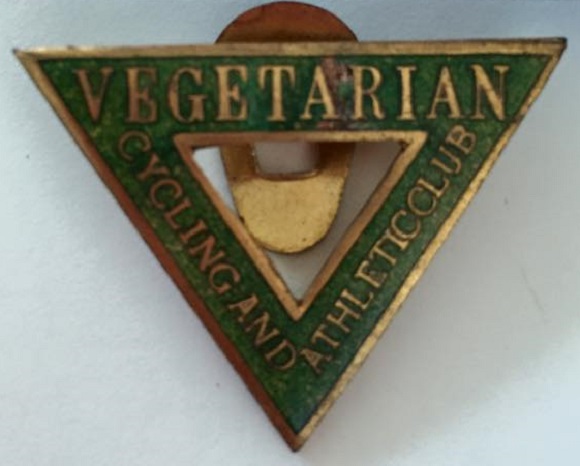
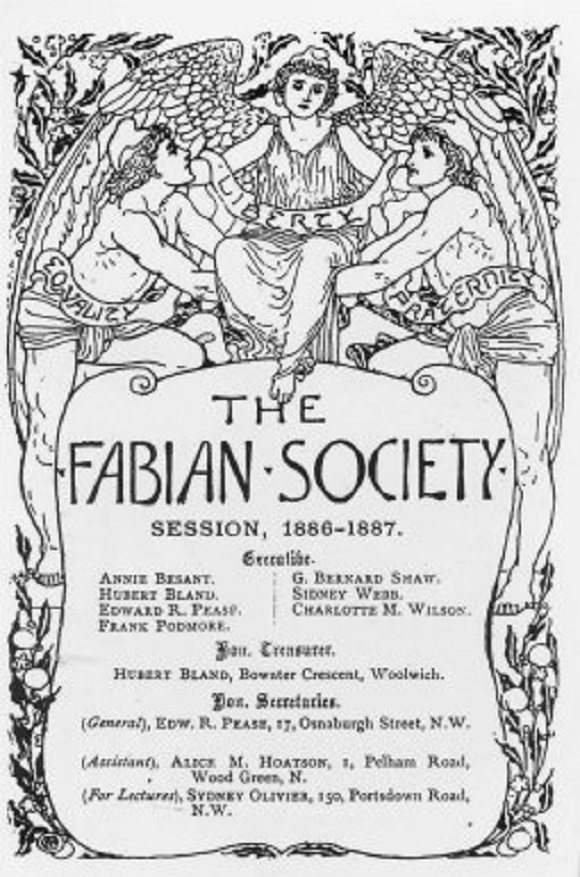


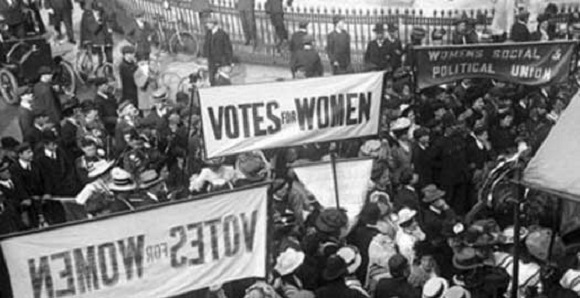
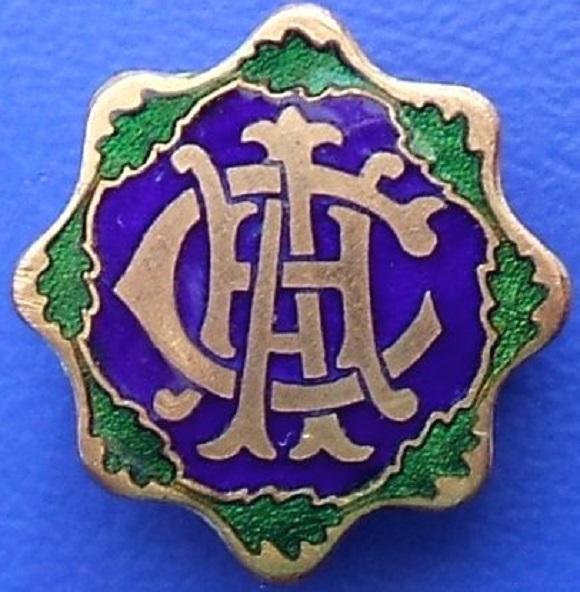
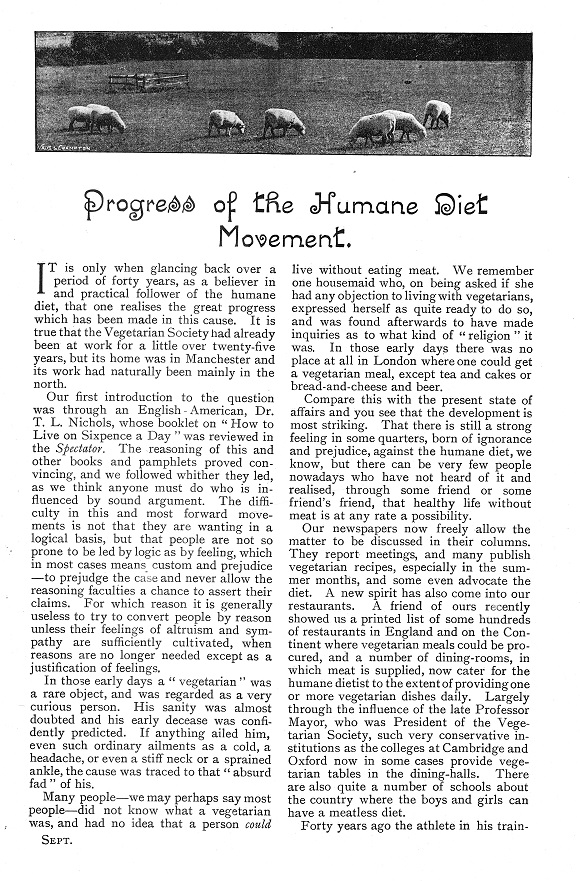

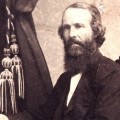

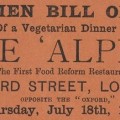
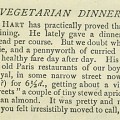
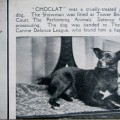
No Comments